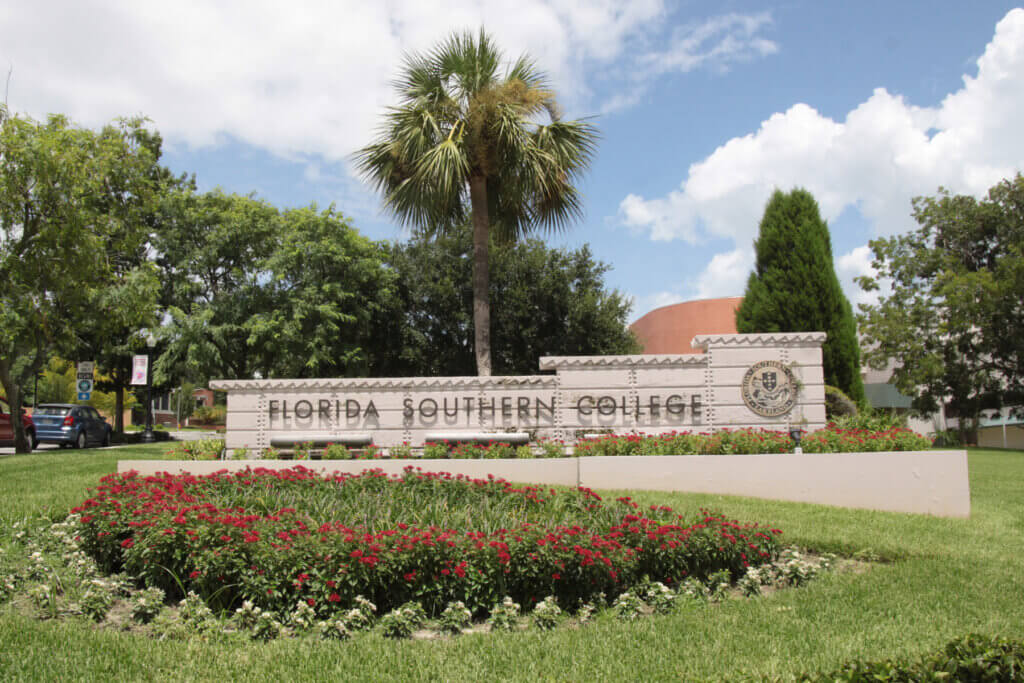Polk Graduates find Success Pursuing High Tech Studies
Margaret and Joanna Sands attended public schools for 12 years in Polk County, spending their formative high school years at Summerlin Academy in Bartow. The military school may have seemed like an odd choice for the STEM-oriented Winter Haven twins, but one thing attracted them: Japanese.
“They ended up there because they got interested in Japanese early on, in eighth grade,” said their mother, Julie Sands, program manager at Winter Haven Economic Development Council. “We looked for Japanese, and the only place that offered it was Summerlin. They were way ahead in math, so they were doing that online.”
The girls, now 21, wanted to attend Bartow’s International Baccalaureate high school. “By the time they graduated, they had 120 hours of college credits,” their mother said.
Their impressive high school careers helped them get into the Massachusetts Institute of Technology (MIT), where they are now seniors majoring in Computer Science and Electrical Engineering. They’re not into Japanese much any more — although Joanna took a one-week educational trip to Japan — but they look back at their Polk County education with a sense of gratitude for those who helped them.
“It was amazing how there were so many great teachers and administrators who went out of their way to help me whenever they could,” said Margaret, echoed by Joanna, who added guidance counselors into the mix.
“I think the education I got in Polk County definitely shaped who am I today,” Joanna said. “I think the school system did really well in certain aspects. For example, the leadership experience I gained at Summerlin has been very valuable for me in group projects, extracurriculars and internships. I also think many of my teachers were great in their passion for learning and helping students.”
In this series, you will meet students who attended Polk County schools and are either pursuing degrees in STEM fields or recently started working in STEM-related jobs. They are making a difference that will impact our lives as technology continues to change. They are the leaders of tomorrow.
Science and math interested both sisters, who have studied software, coding and engineering at MIT and during internships. Their father, Bill, works in computer security and compliance.
“I spent a lot of time as a kid playing around on computers, which eventually led to learning how to code sometime in middle school,” Margaret said. “Once I was in high school and could dual enroll in Polk State, I had the chance to really confirm that computer science was fun,” but says the websites she created back then were probably “terrible.”
They made it work
Although Margaret and Joanna found ways to structure their classes to take as many challenging courses as possible, it wasn’t easy. Requests for schedule changes often required multiple meetings and approvals, they said. Having additional options would have been helpful.
“For example, the school had a system in place to give dual-enrolled students free periods in the afternoon,” Margaret said. “However, (advanced) Calculus was in the afternoons so I wanted to transfer the free period to one in the middle of the day. In discussion it was approved, but in practice it caused administrative issues that had to be worked through.”
Joanna said she was taking at least one dual-enrolled STEM (science, technology, engineering and science class) class a semester during her junior and senior years to supplement classes high school did not offer.
“Dual-enrollment classes were super great in that they allowed me to continue learning after I finished the classes available, but they were also always at night, meaning there were semesters where I was in class from 6:45 a.m. to 2 p.m. and then again from 7 to 10:30 p.m.”
The transition to MIT
The experiences they helped create for themselves set them up nicely to attend MIT.
“My workload is fairly intense in that one assignment for a class can take 16 hours in a week, but I think I have found a good balance,” Margaret said.
Both were scared during the transition to college, the normal fear that envelopes teens. But they overcame that and are excelling.
“You don’t really know what you’re in for or what your workload and lifestyle will be like,” Joanna said. “I think it’s especially scary coming into MIT, where a lot of the students aren’t just ‘good at math’ or ‘interested in science,’ but are actually so talented that they have been recognized on an international stage before they even turned 18. So when coming in, even though I was relatively prepared for what I was about to take, I felt like I couldn’t help but be nervous when comparing myself to others.”
Margaret said she feared not being smart enough at MIT, where the average GPA is 4.16 and the average SAT score at admission is 1528. The twins graduated first in their class — co-valedictorians — with a 4.7 GPA. Margaret scored 1590 on the math and reading portions of the SAT; Joanna scored 1600.
“The only way that I could compare myself to others was standardized tests, but I had no idea how I would do on assignments, projects or new kinds of tests. People at MIT talk a lot of the idea of Imposter Syndrome, which according to Wikipedia is ‘a psychological pattern in which an individual doubts their accomplishments and has a persistent internalized fear of being exposed as a ‘fraud’,’ and looking back on it it’s definitely something I experienced before I left for MIT.”
Internships prepare them for the future
Neither is an imposter, and what they’ve accomplished so far has proven that.
Margaret has spent the last two summers doing software internships at Cisco Systems and Amazon in California, where she “got to meet really smart people and experience working in big companies, which was really interesting,” she said. This summer she plans to work as a software engineering intern at Microsoft.
The latter is what Joanna has been doing the last two summers and winter breaks. “This summer, I want to try something different and focus more on gaining experience in electrical engineering. After applying to a lot of different programs, I recently decided to spend the months after graduation working on analog systems at Lyft Level 5, which is their self-driving car division,” she said.
That fits in nicely with SunTrax near Auburndale, which will start hiring people like the Sands’ twins to oversee its self-driving automobile and toll technology.
After Graduation
Graduation once again brings excitement and fear.
After they graduate this spring, both plan to return to MIT to tackle a one-year master’s degree program.
“The scariest thing in my life right now is probably that I’m going to be graduating in a couple months and then have to decide on what I’m going to focus on for my master’s thesis,” Margaret said. “Currently, I’m trying a little bit of everything. One of the most exciting things in my life right now is how I’ve managed to make such a great group of friends, but I’m still meeting new people and making new friends after being in the same place — and even the same clubs — for 3 ½ years.”
Joanna said she’s excited about gaining more practical electrical engineering experience this summer. “I’m really scared about life after my master’s, just because I’m not sure exactly what I want to do or where I want to live.”
Once they leave MIT for good, Margaret plans to pursue a software engineering job. Joanna is taking time to decide.
As for mom, she’s thrilled to have such accomplished daughters. “I live vicariously. It’s fun just to see what they’re going to do.”
—
If you have questions about this topic or others, please contact us at the Central Florida Development Council.



